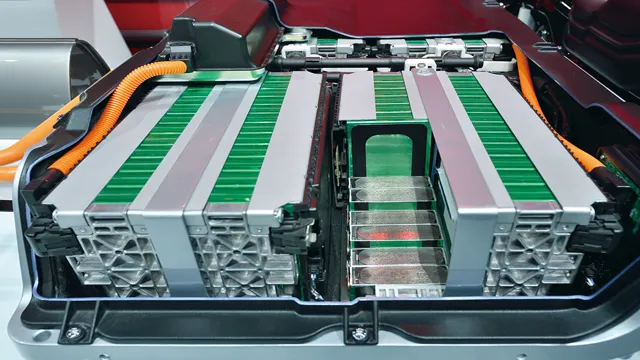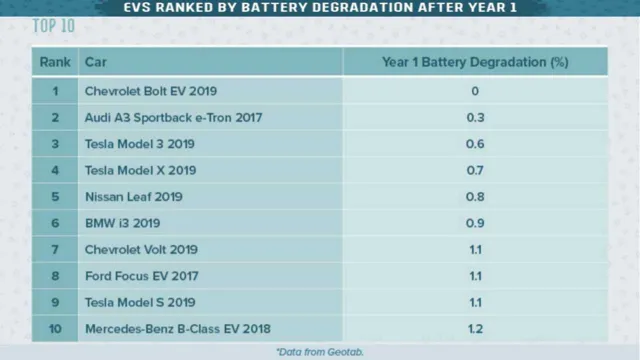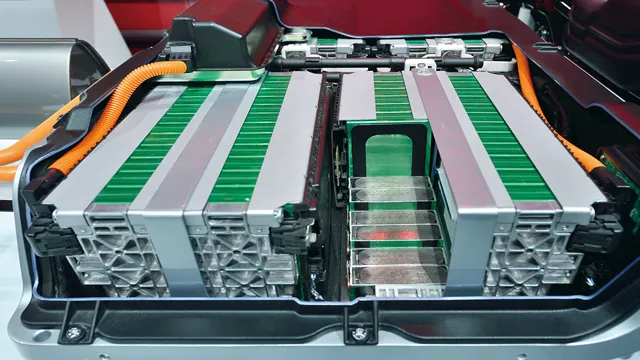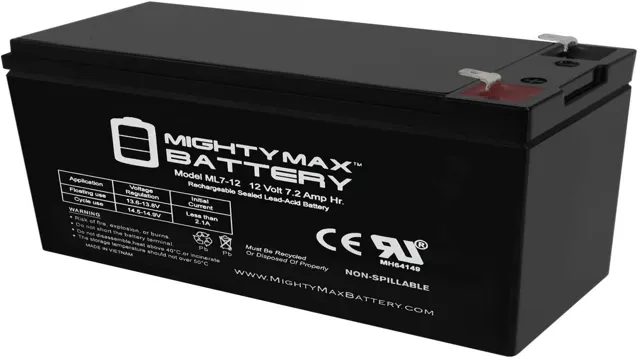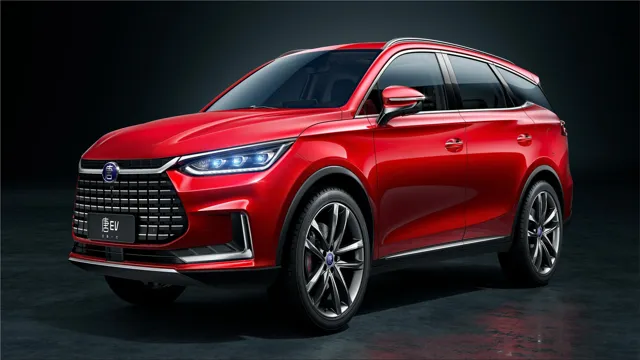Revolutionizing the Future of Transportation: The Power of Electric Cars with Lithium Batteries
Get ready to shift into high gear with the electric revolution! As we move towards a cleaner and more sustainable future, electric cars with lithium batteries are taking the world by storm. These vehicles are the ultimate blend of modern technology and environmental awareness, allowing us to enjoy the freedom of driving without harming the planet. With their high capacity, durability, and energy efficiency, lithium batteries have quickly become the go-to choice for powering electric vehicles.
But what does the future hold for this game-changing technology? Can electric cars with lithium batteries truly replace traditional vehicles? In this blog post, we explore the exciting world of electric cars with lithium batteries and what we can expect from them in the coming years. Get ready to plug in and take a ride into the future!
What are Electric Cars?
An electric car with a lithium battery is essentially a vehicle powered by electricity and using a rechargeable lithium-ion battery. Unlike traditional cars that use gasoline, electric cars use electric motors that turn the wheels and provide propulsion. Lithium-ion batteries are an excellent choice for electric vehicles due to their high energy density and lightweight design, making them an excellent choice for powering an electric car.
Lithium-ion batteries can also be recharged quickly and can provide a lot of power in a short amount of time, which is essential for long-range driving. Electric cars with lithium batteries are becoming increasingly popular due to their eco-friendliness, fuel efficiency, and reduced carbon emissions. Lithium-ion batteries are also easy to maintain and can last for several years, making electric cars with lithium batteries an excellent long-term investment.
So, if you are interested in reducing your carbon footprint and saving money on fuel costs, an electric car with a lithium battery could be the perfect choice for you.
Definition and History of Electric Cars
Electric cars are vehicles that operate using electric motors instead of internal combustion engines. They run on rechargeable batteries that store electrical energy, providing power to the motor that drives the car. Although electric cars have been around for over a century, they have recently gained popularity as part of the push towards more sustainable forms of transportation.
With the rise of climate change concerns and the need to reduce greenhouse gas emissions, electric cars have become a viable alternative to traditional gasoline-powered vehicles. They offer many benefits, such as being quieter, more efficient, and producing zero tailpipe emissions. As technology continues to advance, electric cars are becoming more affordable and accessible to the average consumer.
Overall, electric cars are a promising solution for reducing our dependence on fossil fuels and creating a cleaner, greener future.
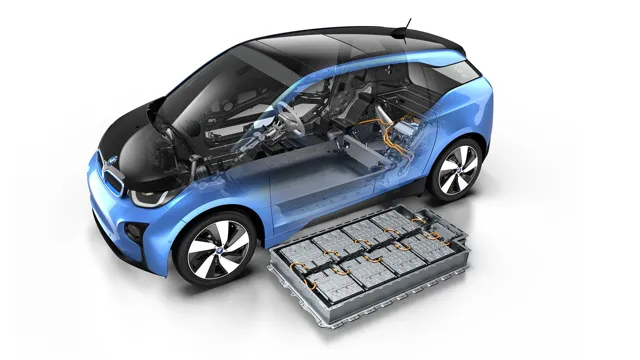
Benefits of Owning an Electric Car
Electric cars are a fairly new invention that are powered by an electric motor, instead of a traditional gasoline engine. These cars are designed to run on batteries that can be recharged by plugging the car into an electrical outlet. Electric cars are more environmentally friendly than traditional cars, as they emit fewer pollutants and use less energy to run.
They are also cheaper to operate than traditional cars, as electricity is less expensive than gasoline. Additionally, electric cars require less maintenance than traditional cars, as they have fewer moving parts and don’t require oil changes or other routine maintenance tasks. Overall, owning an electric car can provide a number of benefits, from reducing your environmental impact to saving you money on gas and maintenance costs.
Lithium Batteries: The Power Source of the Future
As electric cars continue to gain popularity, lithium batteries have become the power source of choice. Lithium batteries are lightweight and have a high energy density, meaning that they can store a lot of energy in a small package. This makes them perfect for use in electric vehicles, which require a lot of power to move.
Electric cars with lithium batteries can also be charged faster than those with traditional lead-acid batteries, which can take hours to fully charge. With lithium batteries, drivers can charge their cars in as little as 30 minutes. This is a huge advantage for those on long road trips as they won’t have to spend hours waiting for their car to charge.
In addition, lithium batteries have a longer lifespan than traditional batteries, meaning that they don’t need to be replaced as often. All in all, lithium batteries are the power source of the future and will continue to play a major role in the electric vehicle revolution.
What are Lithium Batteries?
Lithium batteries are the power source of the future. They are rechargeable batteries that use lithium-ion technology to store electrical energy. Unlike traditional batteries, lithium batteries have higher energy density, which means they can store more energy in less space.
They are also lightweight, making them ideal for use in portable electronic devices like smartphones, laptops, and tablets. Lithium batteries also have a longer lifespan compared to traditional batteries. This is because they have a slower rate of self-discharge, which means they can hold a charge for longer periods.
In addition, they are more efficient, which translates to more power being available when needed. Lithium batteries have revolutionized the electronics industry, and they continue to be the power source of choice for many modern devices. As technology continues to evolve, the future of lithium batteries looks brighter than ever.
Advantages of Lithium Batteries in Electric Cars
Lithium batteries are quickly becoming the power source of the future for electric cars, providing numerous advantages over traditional lead-acid batteries. They provide a higher energy density, meaning they can store more energy in a smaller space. This results in lighter and more efficient batteries that can power electric vehicles for longer distances.
Lithium batteries also have a longer lifespan than lead-acid batteries, reducing the need for frequent replacements. Additionally, they charge more quickly, making them more convenient for drivers who need to charge their cars on the go. The use of lithium batteries in electric cars provides a more sustainable and environmentally friendly option, as they produce fewer greenhouse gases and pollutants than gasoline-powered vehicles.
Overall, the advantages of lithium batteries make them an ideal power source for the future of electric cars, providing reliability and efficiency for drivers while helping to reduce our carbon footprint.
Comparison of Lithium vs. Other Battery Types in Electric Cars
Electric cars are becoming popular, and it’s because of the power source they use. Lithium batteries have been creating buzz in the industry and proving to be the power source of the future. Lithium-ion batteries are lightweight, compact, and have a high-energy density, making them excellent for powering electric cars.
Compared to other battery types, lithium batteries perform better in terms of efficiency, charge time, and lifespan. Lithium batteries charge faster and hold a charge for longer than other battery types, while having a significantly lower environmental footprint. Lithium batteries also have an energy density that is much higher than their alternatives.
While other battery types like lead-acid or nickel-metal hydride have been used previously, they lose out in comparison. The future of electric cars depends on battery technology and increasingly it looks like lithium batteries have what it takes for electric vehicles to become mainstream.
Top Electric Cars with Lithium Batteries on the Market Today
If you’re in the market for an electric car with a lithium battery, there are plenty of great options out there. One of the most popular is the Tesla Model S, which boasts a range of up to 373 miles on a single charge. It also has a stylish, luxurious interior and advanced features like Autopilot self-driving capabilities.
Another strong choice is the Chevrolet Bolt, which can go up to 259 miles before needing a charge and has a spacious, high-tech interior. For a more affordable option, the Nissan Leaf offers a range of up to 150 miles on a single charge and has a smooth, quiet ride. And if you’re looking for something with a bit more space, the Hyundai Kona Electric has a range of up to 258 miles and plenty of room for passengers and cargo.
Whatever your needs and budget, there’s an electric car with a lithium battery that will suit your lifestyle.
Tesla Model S
The Tesla Model S is undoubtedly one of the top electric cars with lithium batteries on the market today. This car has won numerous awards for its impressive performance and design, and it’s easy to see why. The Model S has a range of up to 373 miles on a single charge, making it one of the longest-range electric vehicles available.
It can go from 0 to 60 mph in just 4 seconds, providing an exhilarating driving experience. The interior is sleek and modern, with a large touch screen display that controls most of the car’s functions.
Additionally, the Model S has been hailed for its safety features, scoring a perfect 5-star rating in all categories by the National Highway Traffic Safety Administration. Overall, the Tesla Model S is a game-changer in the electric car market, proving that electric vehicles can be both practical and stylish.
Chevrolet Bolt EV
The Chevrolet Bolt EV is undoubtedly one of the top electric cars with lithium batteries on the market today. This impressive car boasts an impressive range of up to 259 miles on a single charge, which is certainly no small feat. One of the standout features of the Bolt EV is its regenerative braking system, which can help recharge the battery while the car is slowing down.
This means that the Bolt EV can help conserve energy and extend its range further than other electric vehicles. Additionally, the Bolt EV is spacious and comfortable, making it a perfect option for families or anyone who needs extra cargo space. With its affordable price tag, outstanding range, and eco-friendly features, the Chevrolet Bolt EV is a truly remarkable electric car that is revolutionizing the industry.
So why settle for anything less? Consider opting for the Bolt EV, and experience the future of driving today!
Conclusion: Making the Switch to Electric Cars with Lithium Batteries
In conclusion, the rise of the electric car with lithium battery technology represents a thrilling development in the automotive industry. With greater energy efficiency, lower emissions, and a more sustainable future, it’s no wonder why so many drivers are making the switch to electric. The lithium battery has revolutionized the way we think about energy storage and management, paving the way for a more eco-friendly and efficient transportation system.
So let’s all charge up and hit the road, because the electric car revolution is here to stay!”
FAQs
What is an electric car with a lithium battery?
An electric car with a lithium battery is a vehicle that uses electric motors for propulsion and stores energy in a rechargeable lithium-ion battery pack.
How long does a lithium battery in an electric car last?
The lifespan of a lithium battery in an electric car depends on many factors, including usage, temperature, and charging habits. On average, they can last from 8 to 10 years or up to 100,000 miles.
Are electric cars with lithium batteries more expensive than gas-powered cars?
Electric cars with lithium batteries typically have a higher upfront cost than gas-powered cars. However, they have lower operating costs due to cheaper electricity prices. Plus, government incentives can make them more affordable.
How does a lithium battery compare to other types of electric car batteries?
Lithium batteries are the most common type of battery used in electric cars because they have a higher energy density, longer lifespan, and faster charging rates than other battery chemistries like Nickel-metal hydride (NiMH) or lead-acid.

